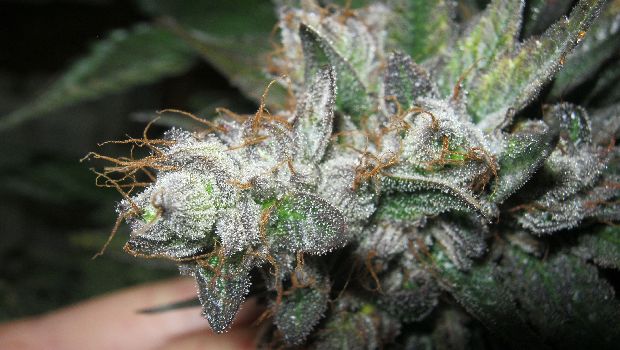Government lawyers insist DEA was well within its authority to adopt a marijuana extract rule and that its adversaries lack “standing" to challenge it.

The Drug Enforcement Administration (DEA) wants to dismiss a lawsuit challenging a “marijuana extract" rule.
DEA’s publication of the rule immediately caused an uproar in the burgeoning cannabidiol (CBD) industry, prompting the Hemp Industries Association (HIA), Centuria Natural Foods Inc. and R.M.H. Holdings Inc. to file a complaint in the U.S. Court of Appeals for the Ninth Circuit.
The U.S. Department of Justice (DOJ) now contends DEA’s adversaries didn’t have the right to file the lawsuit in the first place because they lack "standing."
The marijuana extract rule, DOJ lawyers proclaimed last month in court documents, “inflicts no injury on them [petitioners] but instead simply adjusts DEA’s administrative methods for tracking substances that the federal government has long controlled."
What’s more, government attorneys argued, petitioners waived any claims because they didn’t participate in DEA’s rulemaking proceeding. In 2011, DEA signaled its intent to create a code number for marijuana extract in a notice of proposed rulemaking, but the agency only received six comments on its proposed rule—and none of them addressed issues raised by the petitioners in their lawsuit, DOJ noted.
“Although courts occasionally excuse failure to participate in a rulemaking proceeding where ‘exceptional circumstances’ exist, there are no exceptional circumstances here," government lawyers declared, adding the notice of proposed rulemaking “thoroughly outlined the matters that DEA was considering, and it closely resembles the final rule."
In December, DEA issued a final rule establishing a new code number for marijuana extract. DEA previously created separate code numbers for marijuana and for tetrahydrocannabinols (THCs), but not for marijuana extract.
The agency said the new rule would help it to record accurate data for reporting to international bodies as mandated by multilateral agreements involving the United States.
The rule neither restricts petitioners’ activities nor imposes new penalties for any conduct, according to the government’s June 2 brief.
“As the rule and DEA’s subsequent guidance make clear, the new identification number does not apply to any substance that the CSA did not previously control as ‘marijuana,’" DOJ lawyers wrote. “It simply requires that persons handling a subset of the materials defined as ‘marijuana’ write a different identification number on their administrative paperwork."
The hemp industry views the matter far differently. In its opening brief, HIA and other petitioners that joined the lawsuit proclaimed DEA’s rule “stands to chill the entire legal hemp industry through confusion, misinterpretation and misapplication of law."
In its Federal Register notice announcing the final rule, DEA defined a marijuana extract as “an extract containing one or more cannabinoids that has been derived from any plant of the genus cannabis, other than the separated resin (whether crude or purified) obtained from the plant."
Marijuana extracts, DEA said, would continue to be treated as Schedule I controlled substances.
Publication of the final rule ignited a commotion in the CBD industry because Schedule I controlled substances are illegal, and DEA’s move symbolized yet another complication and risk for companies selling CBD in foods and dietary supplements in interstate commerce.
In a guidance document responding to questions about its marijuana extract rule, DEA noted only trace amounts of cannabinoids are found in the portions of the plant excluded from the definition of marijuana. The scientific literature, the agency noted, indicates cannabinoids such as CBD are found in parts of the plant that meet the definition of marijuana.
According to HIA’s lawsuit, DEA abused its authority because it failed to follow the appropriate procedures in scheduling marijuana extract and cannabinoids, as required by the Controlled Substances Act (CSA). The petitioners also argued DEA continues to treat all cannabis the same, contrary to Section 7606 of the Agricultural Act of 2014, commonly known as the Farm Bill, which carved out certain exceptions for industrial hemp.
CBD is often sold in products labeled as dietary supplements in the United States, and industry representatives said it can be derived from industrial hemp lawfully grown in the United States under the Farm Bill.
Hemp must carry a delta-9 THC concentration of no more than 0.3 percent to meet the definition of industrial hemp under the Farm Bill. By contrast, petitioners’ brief noted, marijuana contains between 3 and 20 percent THC in the plant’s flowering portions.
In its response brief, DEA maintained its rule implements the CSA and does not conflict with the Farm Bill.
Wrote DOJ:
“Although petitioners repeatedly suggest that the Agricultural Act ‘universally’ authorized activities involving industrial hemp … that suggestion is incorrect: the authorization to grow industrial hemp applies (1) to ‘institution[s] of higher education’ and ‘State department[s] of agriculture’ that (2) ‘grow[] or cultivate[]’ industrial hemp ‘for purposes of research conducted under an agricultural pilot program or other agricultural or academic research,’ and (3) only if state law permits the activity.
“Unless all of those criteria are satisfied, the Agricultural Act’s limited authorization does not apply, and the ‘industrial hemp plant ... may not be grown in the United States.’"
About the Author(s)
You May Also Like






.png?width=800&auto=webp&quality=80&disable=upscale)